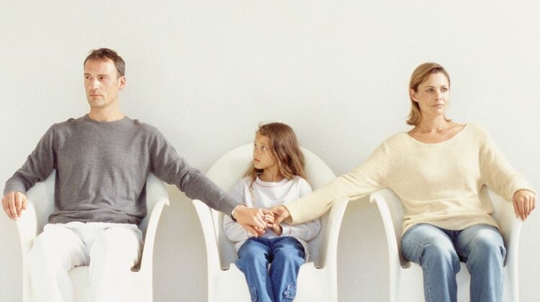If you and your partner are thinking about getting a divorce, it is important that the both of you are aware of the potential short-term and long-term effects your actions may have on your child.
Short Term
- If your child is too young to understand the situation fully he or she might feel guilty or responsible for the divorce.
- Your child may become increasingly aggressive, violent and/or uncooperative, lashing out at both you and your partner, his or her friends and teachers
- Or, he or she may become emotionally needy out of fear of being abandoned.
- Your child may begin exhibiting “hermit-like” behavior and/or become depressed.
- Feelings of anger and resentment may surface and be directed towards both you and your former spouse/partner for deciding to split-up.
- He or she may lose the ability to concentrate which could then affect school work and academic performance.
- Intense feelings of grief and loss may arise, or
- You may notice the occurrence, re-emergence or increase of bedwetting if your child is younger.
Long Term
Generally, the effects of divorce on children are short term after which they fade once the child has had time to adjust to the new family situation and all the changes that have occurred. However, you should note that there are a small number of cases where the effects may be long term. The children of divorced parents may be more likely to:
- be less educated.
- experience poverty and/or socio-economic disadvantage.
- exhibit anti-social behavior as well as other behavioral problems.
- suffer from drug and/or alcohol addictions.
- get married or cohabit at an earlier age.
- become teenage parents or conceive a child outside of marriage, or
- experience separation and/or divorce themselves.
- Every child will react differently to the situation and you may find that your child continues acting normally despite the divorce. However, to avoid any of these problems from occurring, or at least to try and lessen the impact of the divorce on your child, you must ensure that he or she does not get caught in the middle of the divorce and try to maintain a close relationship with your child as well as ensure constant communication.
Are there any positive effects of divorce on children?
Although divorce is most often a traumatic and devastating experience for children during which their lives vastly change. It is sometimes the case that children actually benefit from divorce especially when the parents’ inability to get along creates an intensely hostile and tense environment to which the child was regularly exposed. Divorce may bring an end to that and instead create a more stable and nurturing environment for the child.

